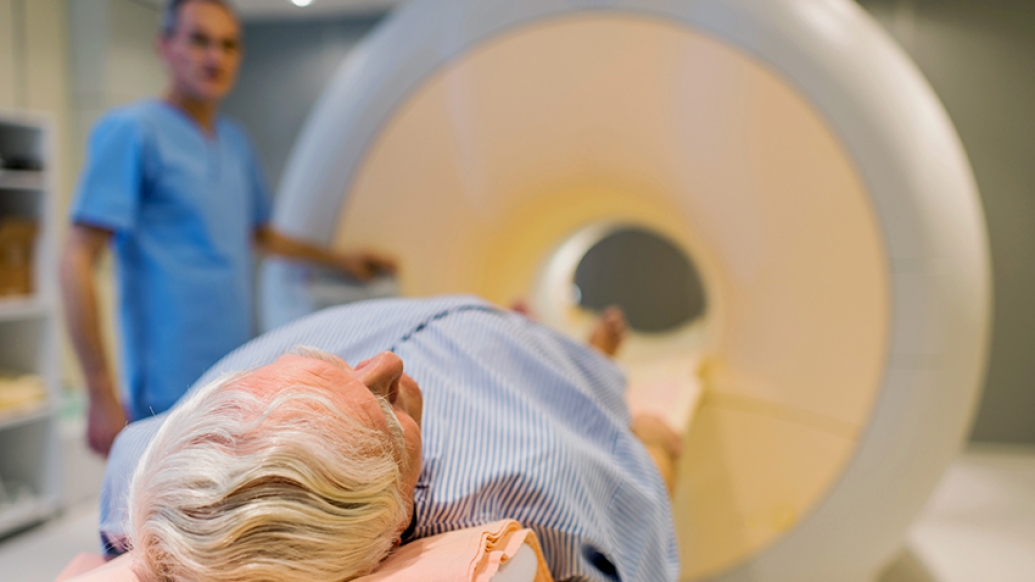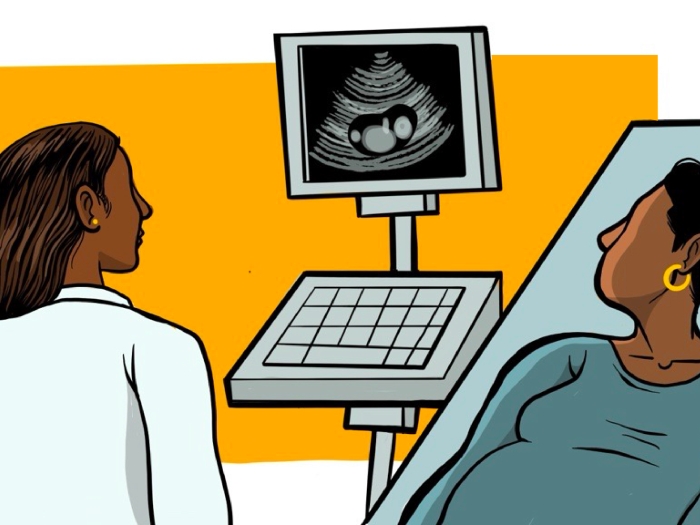A new U-M study assesses the short-term degrees of discomfort associated with prostate MRIs and biopsies, offering insights for future prostate cancer patient care.
7:00 AM
Author |

Discomfort: a word that no one wants to associate with a medical procedure. But sadly, it's sometimes unavoidable.
A new University of Michigan study — recently published in the Journal of the American College of Radiology, examined the short-term degree of discomfort associated with two different prostate cancer detection methods: prostate MRIs and prostate biopsies.
Of the two, the MRI is noninvasive. The researchers wanted to understand whether patients experienced less discomfort with the MRI than they did with the biopsy.
LISTEN UP: Add the new Michigan Medicine News Break to your Alexa-enabled device, or subscribe to our daily audio updates on iTunes, Google Play and Stitcher.
The study, led by Prasad Shankar, M.D., an assistant professor of radiology, surveyed 110 men with low-risk prostate cancers who previously underwent one of the two tests.
"We discovered the overall testing-related quality of life of a prostate MRI to be significantly greater than a prostate biopsy," says Shankar.
Reporting out
In addition to assessing the patients' reported baseline health, the research team focused on assessing the patients' testing-specific health, or the short-term impact the tests had on the patients' health.
"We found that the baseline physical and mental health levels were similar for patients undergoing either prostate biopsy or MRI," says Shankar. "This indicated that any observed differences in testing-related temporary health experiences and quality of life were not due to latent differences in population health states.
More specifically, one group was not inherently more depressed or in worse physical health than the other."
SEE ALSO: Researchers Pinpoint New Subtype of Prostate Cancer
The surveyed patients initially enrolled in the study by responding to a phone interview performed one to three days after the diagnostic test was complete. This staggered approach was designed to minimize recall bias.
To study the effects of both types of prostate cancer screenings, the team used a validated surveying tool that evaluated the disutility rates after each testing method.
"Essentially, we wanted to know more about their quality of life following these tests," says Shankar.
The study's multicomponent survey questionnaire used validated tools with opportunities for subjective responses, including questions like, "What was the best part of your recent test?" and "What was the worst part of your recent test?"
The primary outcome measure of the test was the testing-related health utility score derived from the testing morbidity index. This is a validated instrument that is designed to assess temporary health states following diagnostic testing.
The outcome
Surprisingly, the team found that there were significant differences in patient-reported experiences before and during both prostate cancer testing methods.
The team included additional radiologists, urologists and members of U-M's Department of Industrial and Operations Engineering.
MORE FROM MICHIGAN: Sign up for our weekly newsletter
The study found that patients who underwent a prostate MRI reported an average transient health state of 95 percent (utility score of 0.95) of their baseline quality of life. This figure was significantly higher than the 82 percent (utility score of 0.82) of baseline health state experienced by those undergoing a prostate biopsy.
Looking to the future
From a physician-to-patient perspective, Shankar and his team hope that the data can be used to inform cost-effectiveness studies, as well as improve quality initiatives for individuals with prostate cancer.
"Overall, we hope that the patient-reported results of this study can be considered by insurance providers in determining coverage for MRIs, especially in settings deemed appropriate by both urologists and patients," says Shankar.
And because this study was truly a multidepartmental collaboration, Shankar and his team hope that their work will inspire subsequent studies on evaluating testing-related health measures in larger, more heterogeneous populations.
"These types of patient-reported outcome measures can be very helpful in monitoring quality and process improvements," says Shankar. "We're very excited about where this may lead."

Explore a variety of healthcare news & stories by visiting the Health Lab home page for more articles.

Department of Communication at Michigan Medicine
Want top health & research news weekly? Sign up for Health Lab’s newsletters today!





